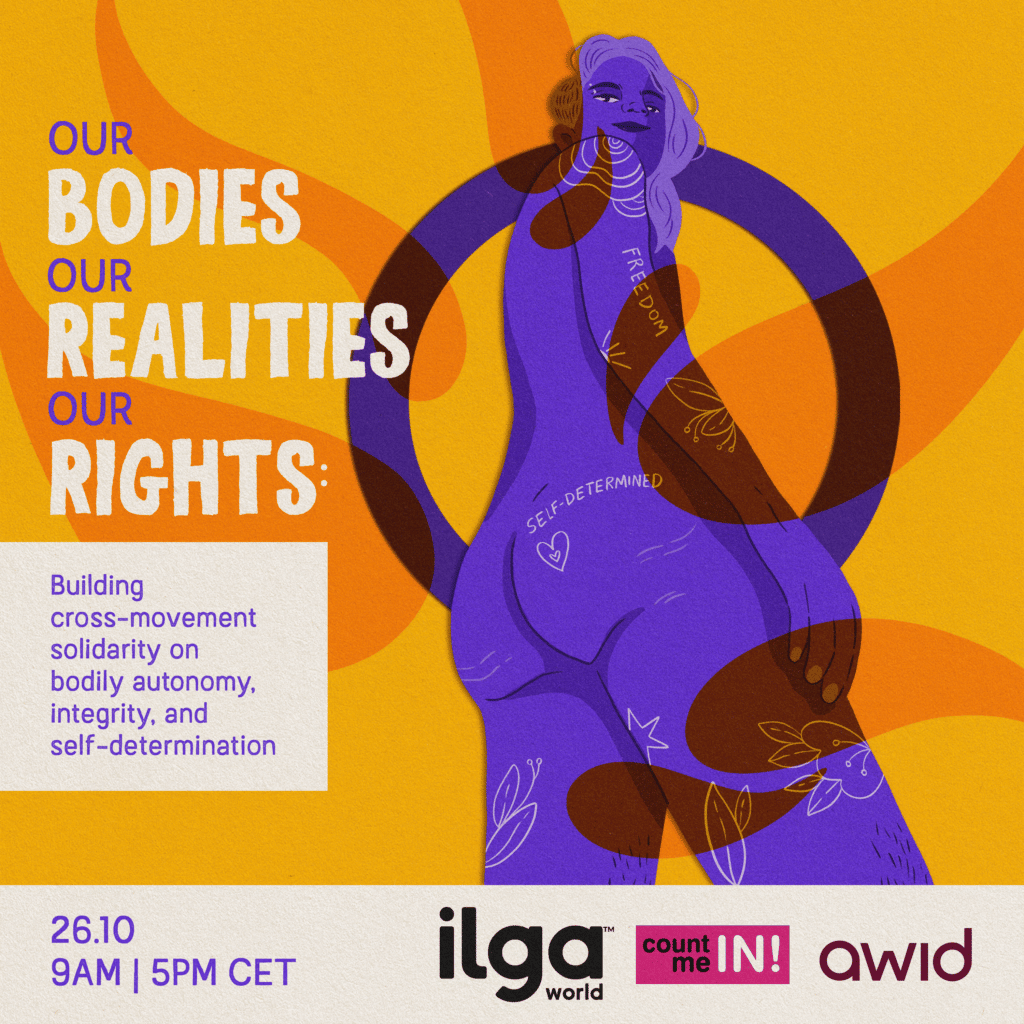Our bodies are the primary means by which we experience and participate in society. Without full control over our bodies, structurally excluded groups such as women, sex workers, LGBTQ+ people, intersex people, and people living with disabilities cannot enjoy the full constellation of human rights. Human rights defenders clearly emphasised this message during an online event organised by ILGA World, AWID, and Count Me In! on the occasion of Intersex Awareness Day 2022.
Around 1.7% of babies worldwide are born intersex. Yet, there is a dire lack of information resulting in a massive amount of stigma associated with intersex people. This hinders them not only to practice their bodily autonomy, which is the freedom to make decisions about your body but also bodily integrity, which is the right not to have your body touched or intervened on without your consent.
Many of them face intersex genital mutilation (IGM) – one of the most brutal violations of the human rights of intersex people, supported and enabled by social and medical prejudice and ignorance. Therefore, more education, advocacy, and awareness are needed to secure the human rights of intersex people.


These are some of the points activists and leaders from 6 countries around the world, belonging not only to the intersex movement, but to the abortion, disability, and sex workers’ rights movements, emphasised during the Our Bodies, Our Realities, Our Rights event. We will soon publish all the materials that came out of the event.
The thematic event titled Our Bodies, Our Realities, Our Rights both marked Intersex Awareness day and revive our dedication to the feminist undertaking of the Affirmation of Feminist Principles.
The aim of the event “Our Bodies, Our Realities, Our Rights” was to raise awareness of the violence and abuses faced by intersex people. It was also an opportunity to foster cross-movement cooperation between intersex people and other structurally excluded groups such as trans people, people with disabilities, Black and Indigenous individuals, and people needing access to safe abortions–for whom bodily autonomy and integrity are also a priority.
The conversation was moderated by Eli Rubashkyn, consultant of ILGA World’s Gender Identity & Expression and Sex Characteristics Programme.